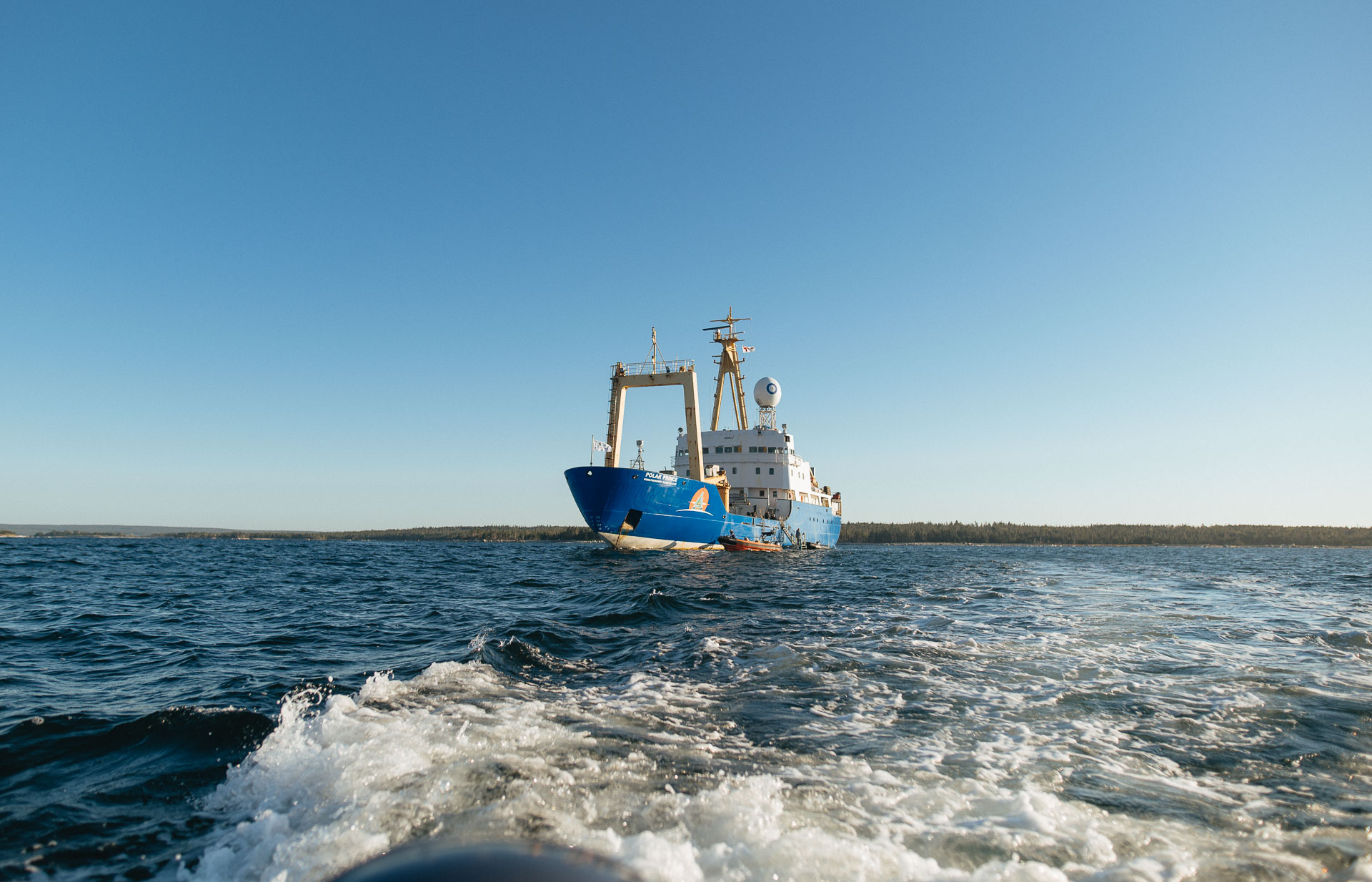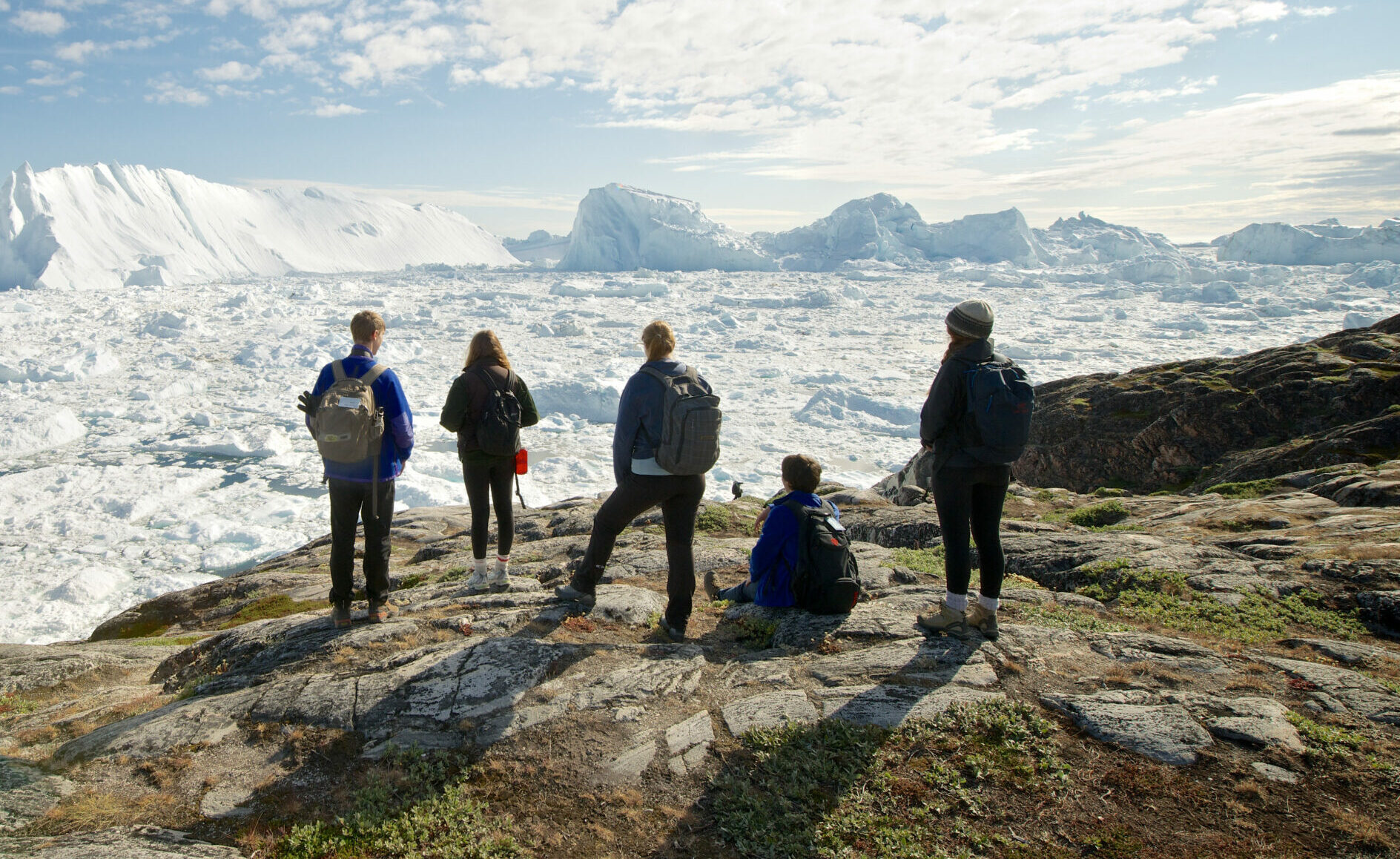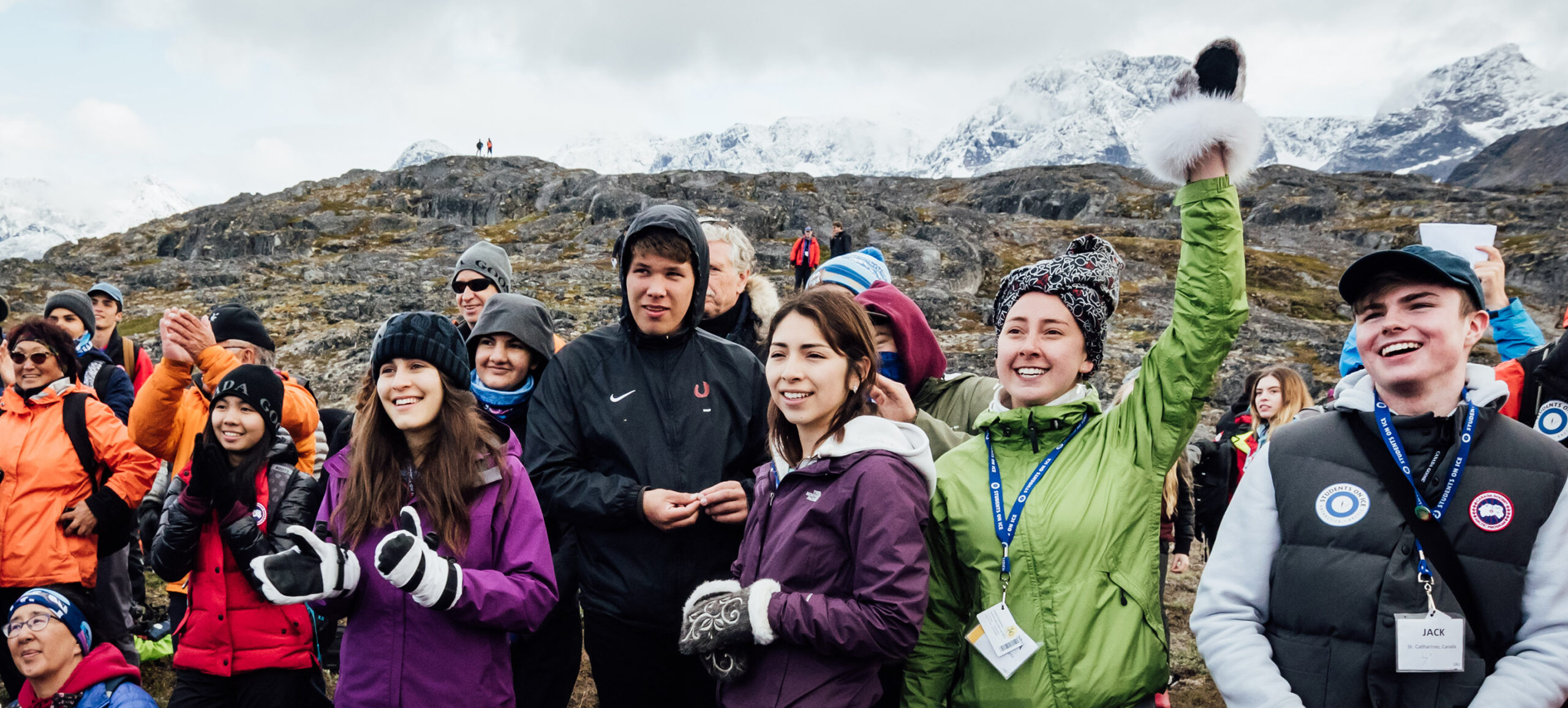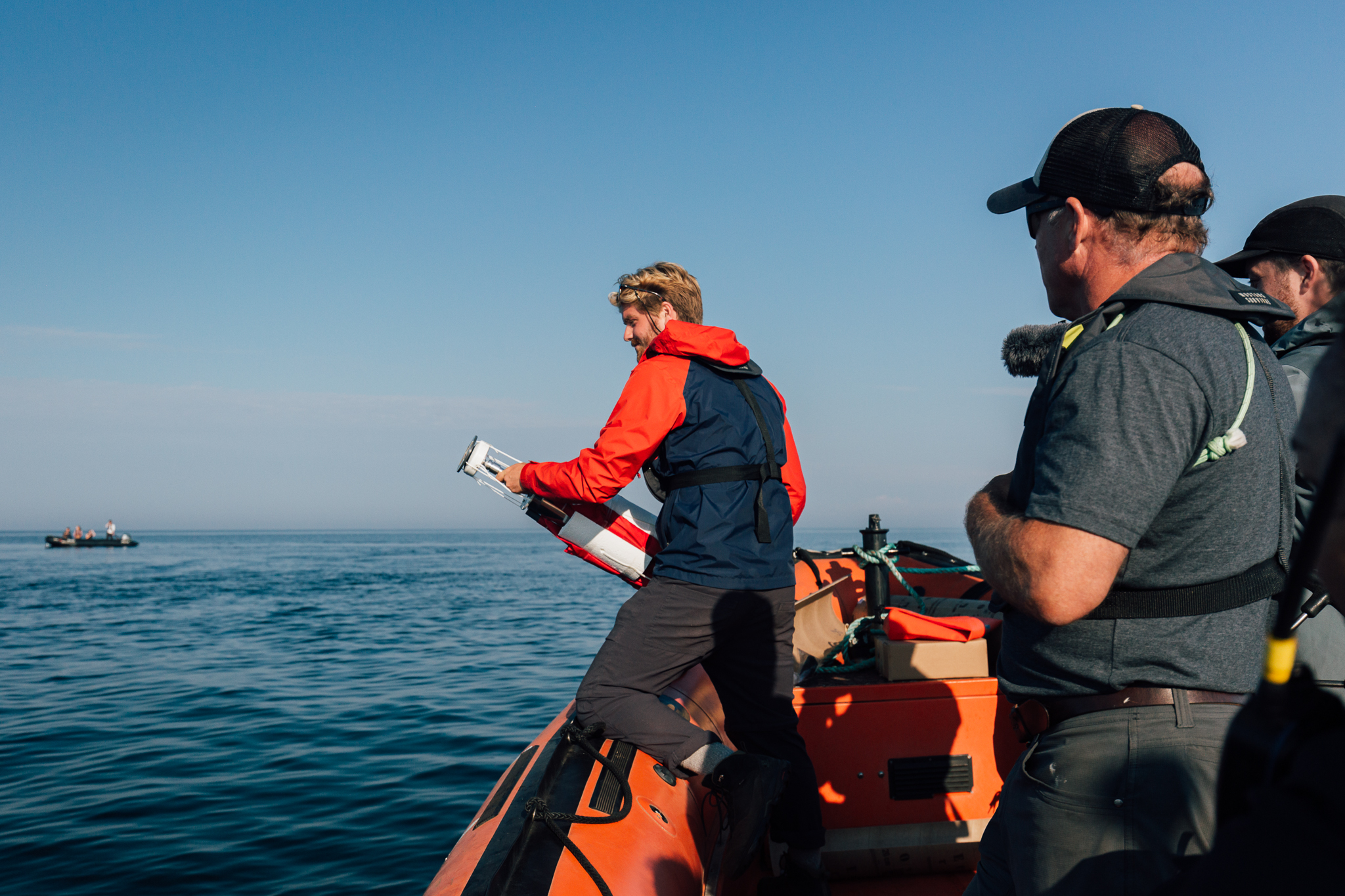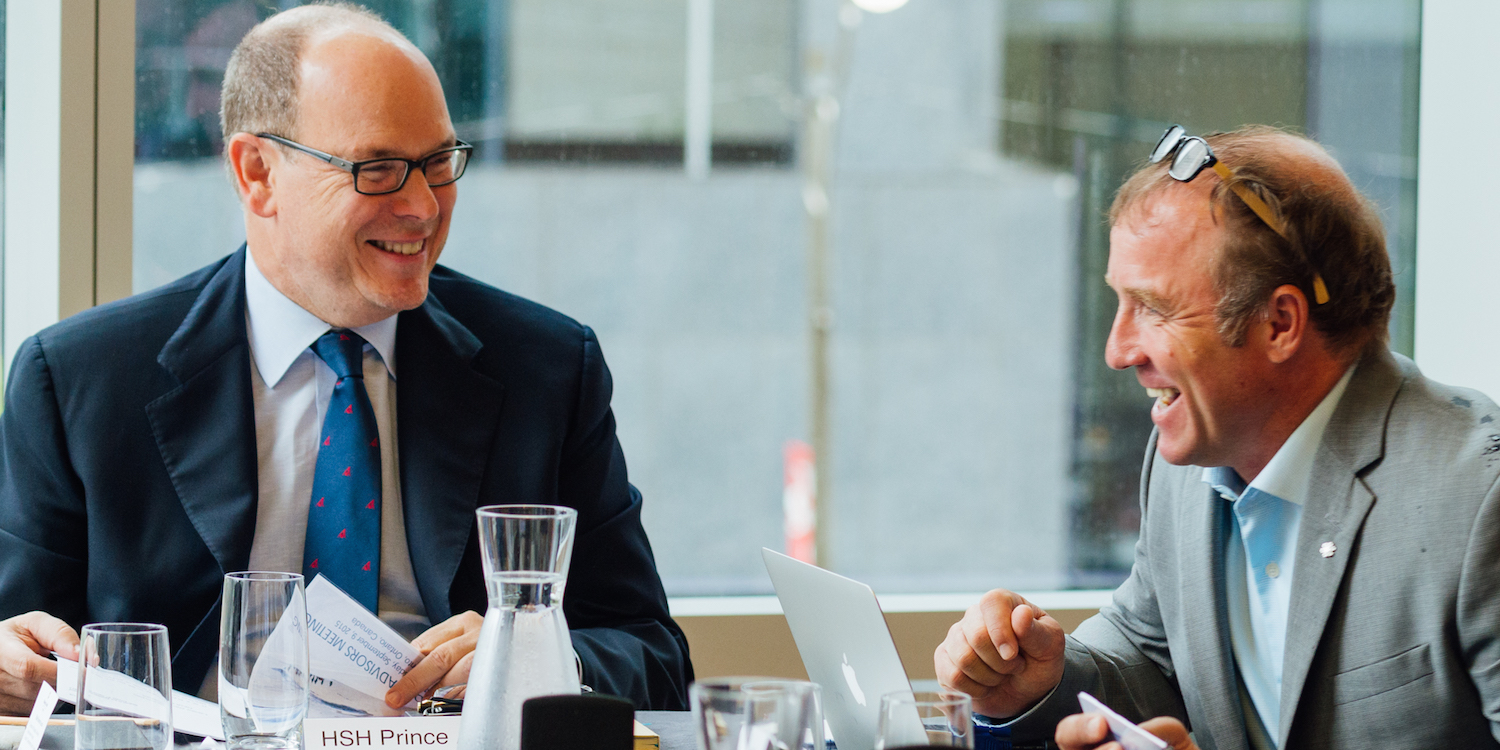2024 Iceland Delegation: Update 2
The Arctic Circle Assembly was a busy three days of engaging speaker sessions, networking, and collaboration. From the moment our team stepped foot into the Harpa Centre the energy was palpable as attendees excitedly reconnected with old friends and colleagues.
With packed agendas, our team members made their way to their first sessions. Many of us attended talks about Arctic Indigenous youth leadership, bolstering resilient food systems in the Arctic, and scientific and Indigenous knowledge.
“I’m incredibly grateful to Students on Ice Foundation for the opportunity to engage with critical discussions that will shape the future of the Arctic. “ — Alayna

In the evening the conversation shifted towards the Third Pole, a running theme at this year’s assembly. Consideration of a Third Pole–the Himalayas–was a big point of interest given its unique climate and the prevailing environmental concerns around conserving it and other ice-covered areas of the world. Representatives from Arctic countries and Asia gathered to discuss the Arctic, Antarctic, and Himalaya-Third Pole for consultation and cooperation. This was all part of the launch of Polar Dialogue, a new initiative by the Arctic Circle Assembly that builds on discussions from the 2023 Paris Polar Summit.
While these discussions continued across the three days, the absence of Northern Indigenous representation around the topic was noted and something our delegation hopes to see improved during future talks.
The first evening’s reception, titled Norwegian Arctic of Tomorrow and hosted by FRAM (High North Research Centre for Climate and the Environment), provided a great opportunity to network and build new connections with like-minded leaders—especially for one of our delegates, Alayna who is currently attending school in Tromso. Alayna’s continued passion for raising the voices of Arctic communities meant she knew almost everyone in the room!

The next morning we returned to the assembly feeling charged and motivated by the previous day’s discussions, and hungry for more! Once again our delegates set off to take in discussions on a range of topics.
The panel on the International Polar Year 2032-33 discussed closing the major knowledge gaps in Arctic science and conservation and accelerating progress towards achieving the UN Sustainable Development Goals. During the Success of the Arctic Circle Berlin Forum talk, Germany’s Federal Minister of Education and Research, Bettina Stark-Watzinger, spoke of Germany’s trailblazing missions to take Arctic research to the next level. Sharing the Arctic: A Sustainable Future for Arctic Tourism saw Icelandic mayor Ásthildur Sturludóttir and Norway’s Frigg Jørgensen, Executive Director of the Association of Arctic Expedition Cruise Operators speak to ongoing issues surrounding tourism and share the Arctic Policy Hackathon policy recommendations.
Another interesting comment came from the panelists on the “View of the Canadian Arctic through an Indo-Pacific Lens” session. It was acknowledged that Canada does well at including Indigenous knowledge and values in its fight against climate change in the Arctic, however, there is a need for better documentation to help build a model based on Canada’s success.

On the final day of the conference, it was the Students on Ice delegates’ turn to take the stage along with representatives from the UK Polar Network, the Association for Polar Early Career Scientists (APECS), APECS Korea, the Korea Arctic Research Consortium, and Korea Polar Research Institute. The Early Career and International Perspectives on Polar Science Policy Linkages session saw Arctic-based SOI Alumni speak about the importance of representation for young professionals at events such as the Arctic Circle Assembly and others. They also spoke about some of the barriers they face, financial and otherwise, in participating in meaningful forums on Arctic policy. From opportunities to engage to issues around housing, our delegates fielded questions from the crowd on a variety of topics, including how Indigenous values might play a role in overcoming some barriers.
“Utilizing the amazing values that are Inuit Qaujimajatuqangit – I believe they can be used almost everywhere.” — Taylor.

On the final night of the conference, guests were treated to a moving performance from Yo-Yo Ma, which beautifully captured the emotions of the human struggle with climate change. We all gathered in the reception hall for a final time to bid farewell to our fellow delegates and catch up with recently made friends.
Until next year, Arctic Circle Assembly and Iceland! It was a pleasure as always!
